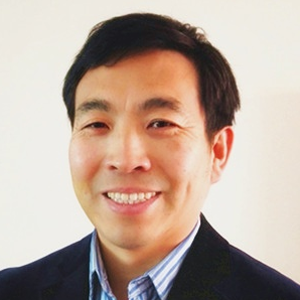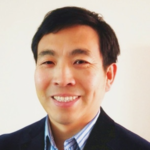
11 Nov Interview with Lingbing Zhang of Yinuoke Ltd

Dr. Zhang is the founder and CEO of Yinuoke Ltd, a clinical stage biotech company developing First-in-Class cancer immunotherapies based on a new concept. Dr. Zhang graduated from Jilin University with a doctoral degree of immunology in 2007. From 2008 to 2012, Dr.Zhang did a postdoctoral fellowship at Stanford School of Medicine studying cancer immunology and immunotherapy. After the postdoctoral fellowship, Dr.Zhang continued to study cancer immunology for another four years at Stanford School of Medicine, focusing on the immune system dynamics during cancer progression and its impact on the host. Read his full bio.
Interview with Lingbing Zhang of Yinuoke Ltd
Q: The Nobel Prize in Medicine was awarded recently to James Allison and Tasuku for their work on unleashing the body’s immune system to attack cancer, a breakthrough that has led to an entirely new class of drugs and brought lasting remissions to many patients who had run out of options. The Nobel committee hailed their accomplishments as establishing “an entirely new principle for cancer therapy.” What is your first-hand experience the impact that those new drugs had on patients?
A: Although I don’t have first-hand experience with those new drugs, several of my friends asked me for suggestions because they know I have been studying cancer immunotherapy for 15 years. Some of my friends have tried the PD-1 inhibitors and encountered organ inflammation, which is a severe side effect. As a result, they had to stop the treatment. One main limitation of the new drugs is: they do not work in all cancer patients—they are efficacious in a group of cancer patients. Many patients with advanced cancer have been cured by the new drugs. Because of the improved efficacy, people have begun to realize and accept the potential of cancer immunotherapy. Five years ago, most people were skeptical that cancer immunotherapy could make a big difference in the lives of cancer patients. This Nobel prize will greatly increase awareness in cancer immunotherapy, which is very good. With more resources entering the field, I believe we will accelerate the product development process and deepen our knowledge of cancer immunology and develop better cancer immunotherapy drugs.
Q: What will the next generation of immune therapies look like for cancer?
A: I believe the next generation of immune therapies will come more rapidly than the first generation of cancer therapies. With that said, it is very difficult to fully describe the new generation of therapies since we are still in the infancy stage and the field develops rapidly. However, I am confident that we will see great progress in the following three areas, which will fundamentally improve cancer care, especially late stage cancer. First, immune therapies that modulate tumor-induced immune disorder will appear. The new term ‘tumor-induced immune disorder (TID)’ was first proposed by Yinuoke, because we believe it more accurately describes the immune status of cancer patients at late stage. If you look at the blood of patients with late stage cancer, you will always see severely imbalanced immune cell populations, such as high neutrophils and low lymphocytes, and you will see multiple dramatically elevated cytokines. Historically this phenomenon is called systemic inflammation, but this causes some confusion since people tend to think systemic inflammation can be treated with traditional anti-inflammatory drugs, but in clinical reality, the effect of traditional anti-inflammatory drugs in treating this condition is very limited. We believe TID more accurately describes systemic inflammation as tumor induced. Currently we have very strong clinical data showing that TID is the major cause of most late stage cancer symptoms, such as: fatigue, body weight loss, pain, etc., but there are NO approved drugs that can safely and effectively modulate TID. At Yinuoke, one of our major efforts is to develop products that can safely modulate TID and we have generated very promising animal efficacy data. By modulating TID, we could not only eliminate the symptoms and improve physical condition of mice mimicking late-stage cancer, but also dramatically increase mice survival. In fact, we usually need to terminate mice in the treatment group because they survive too long. Our first product was approved by the FDA for a human clinical trial to be initiated in early 2019. We look forward to seeing patients’ response to our TID therapy next year. Second, we will see immunotherapy products that could rebuild patients’ anti-tumor immunity. The mechanism of action of currently approved checkpoint inhibitors is to remove the ‘brake’ on T-cells, which means it needs T cells existing in a tumor microenvironment, but from our own and other’s studies we know in majority of late stage cancer patients, T cells in both in circulations and tumor microenvironment have become extremely low. In my mind, that is the reason why a majority of advanced cancer patients do not respond to the approved checkpoint inhibitors. So, the obvious need is products that can rebuild the anti-tumor immunity including increasing anti-tumor T-cells in tumor microenvironments. The CAR-T therapies can help, but are not enough, since for solid cancer there are too many hurdles for the engineered T-cells to work effectively in an extremely unsupportive tumor microenvironment. Fortunately, we have many theoretically possible ways to alter the tumor microenvironment. At Yinuoke, we are developing products that can modulate the tumor microenvironment to generate more anti-tumor T-cells and support them to be more effective. But for most late-stage cancer patients, the first step is to modulate the TID to remove the constant immune attack on a patient’s body and thus improve the patient’s overall health. Otherwise patients may not have the chance to generate a strong anti-tumor immune response in their body. Lastly, I think is also very important is to establish more accurate diagnostic methods that can precisely measure anti-tumor immunity status in real time in each cancer patient. When we talk about precision medicine in the field of cancer, most people are thinking about tumor genetic mutations. The mutation burden will influence the anti-tumor immunity and can be used as one method. But we have observed in animal studies that the anti-tumor immunity is very dynamic, which keeps changing even without any new mutations. So, we also need more methods to capture the status of anti-tumor immune cells in real time. Eventually we will develop a system to score the level of anti-tumor immunity in each cancer patient at each specific time point, just like we have the staging system for tumor burden in current cancer care. Thus, oncologists could prescribe the most appropriate cancer immunotherapy drug for each cancer patient at specific time points based on this score. The above are the three aspects I believe will experience great progress. I also would like to see next generation therapies that can benefit cancer patients. We may need more generations of therapies to reach our ultimate goal—to make a cure for all cancer patients.
Q: The checkpoint inhibitors and CAR-T therapies now on the market have only been approved for some cancer types and benefit only a small subset of those patients. What do you project the role of immunotherapy in cancer care will be ten years from now?
A: I believe cancer immunotherapy will play a much more important role ten years from now. Firstly, we will have new drugs to modulate the tumor-induced immune disorder (TID) I mentioned above; thus, many terminally-ill cancer patients could be saved and receive tumor-targeted treatments. The number of cancer patients that can benefit from the TID modulating drugs is large and the clinical impact will be massive. According to published data, 30% of cancer deaths could be prevented. Secondly, more checkpoint inhibitors and anti-tumor immunity rebuilding drugs will be available and patients will have many more treatment options. Lastly, cancer immunotherapy will be routinely incorporated into the clinical care of many types of cancer. Armed with an established anti-tumor immunity scoring system, doctors would be able to assign an anti-tumor immunity score on the diagnostic report of cancer patients in addition to their tumor stage and gene mutations. Based on this report, oncologists would design the best treatment regimen for each cancer patient. To be clear, the treatment regimen may not only include immunotherapy, but may also include other cancer treatments that have proven effective via clinical practice. For example, if a cancer patient could undergo an operation to remove a large tumor burden, an optimal regimen may include operation combined with appropriate immunotherapy drugs determined by his real time immunity score. The immunotherapy drug is of paramount importance to rebuild or maintain high level anti-tumor immunity in a patient’s body; thus, the patient will avoid tumor relapse and reach a cure. This is an ideal scenario, the reality is more complicated, but I believe more cancer patients will have the chance to be treated more effectively with the development of cancer immunotherapy and its gradual incorporation into clinical practice.
Q: Approved immunotherapy drugs have severe side effects, turning the fury of the immune system against the patient own healthy cells, and they are expensive, costing more than $100,000 a year. Do you expect any of those to change in the near future?
A: I am confident both side effects and high treatment costs will improve, especially the issue of side effects of currently approved immunotherapy drugs. Since people have realized the potential of cancer immunotherapy, companies are working hard to develop better solutions. At Yinuoke we are developing products that aim to reduce the side effects of other cancer therapies, including chemotherapy and checkpoint inhibitors. One of our products under preclinical development could significantly reduce the side effect of PD1 inhibitors. Mice receiving a combined treatment have a significant reduction in side effects and thus better-quality outcomes than mice receiving only an anti-PD1 antibody. More importantly, the combined treatment has much better efficacy, both in anti-tumor effect and in efficacy on survival. This result is very important, since a major concern is you are likely to sacrifice the efficacy of cancer immunotherapy if you try to remove the side effects, because the side effects are also mediated by the immune response. These findings provide us with the confidence that we could have better therapeutic efficacy of cancer immunotherapy by shutting down the unwanted side effects. Based on our research and the rapid development of the whole field, I am very optimistic that we will have better cancer immunotherapy (combination) treatments with better clinical performance (strong efficacy with minimum side effects) in the future. Regarding high treatment cost (usually more than $100,000 a year), I think it’s mainly driven by the high costs of drug development. The price should gradually decrease as more immunotherapy products enter the market, creating more treatment options.
Q: Is there anything you would like to share with the PMWC audience?
A: We are entering a new era of cancer immunotherapy. The potential of this class of therapies are far from being fully realized. So far most of the efforts have only focused on stimulating the immune system to attack cancer cells, but the impact of the immune system on cancer patients is much more than that. Strong clinical and experimental data have suggested that tumors can induce severe immune disorders (TID) in advanced cancer patients. These immune disorders could bring massive damage to a patient’s body. We believe that many advanced cancer patients (i.e. 30%) could be saved if we have drugs that could safely modulate the tumor-induced immune disorder toward a normal state. At Yinuoke, we are dedicated to developing this new class of cancer immunotherapy drugs.






